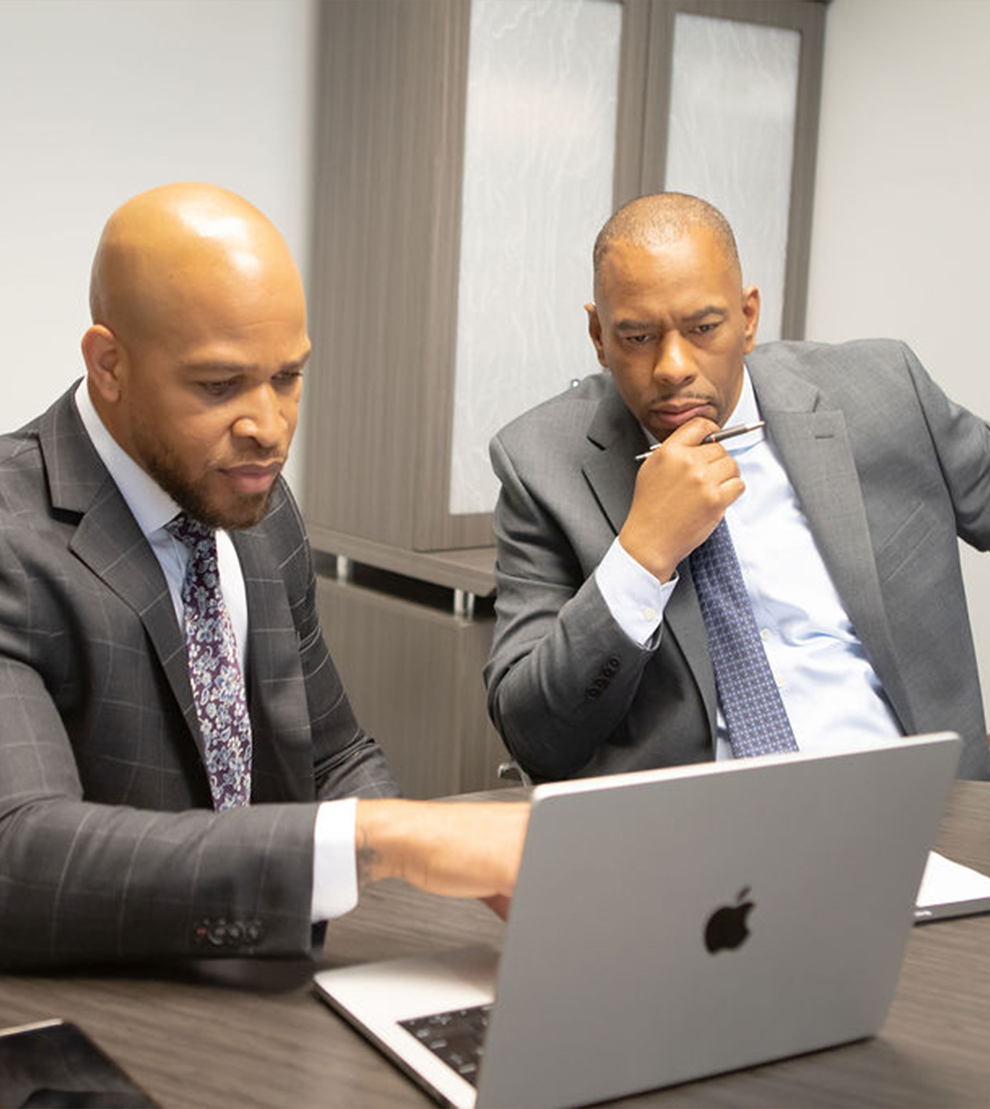What to Do Immediately After a Personal Injury Accident
Experiencing a personal injury accident can be overwhelming, leaving you unsure of your next steps. Whether it’s a car crash, workplace injury, or slip and fall, what you do immediately afterward can significantly impact your safety, health, and the outcome of any potential legal or insurance claims. This guide walks you through the essential steps to take right after a personal injury accident.
Assess Your Safety and Health
Your first priority after an accident is ensuring your safety and well-being.
- Move to Safety: If you’re in a dangerous location, like the middle of a road, move to a safe area if possible, but avoid putting yourself at further risk.
- Check for Injuries: Assess yourself and others involved for visible injuries. Even if you feel fine, don’t assume you’re unharmed. Some injuries, such as concussions or internal injuries, can remain hidden at first.
If medical attention is necessary, call 911 immediately.
Notify the Authorities
Reporting the accident is crucial. Depending on the type of accident, this might involve contacting:
- Emergency Services: If there are injuries, call for an ambulance and the police.
- Your Supervisor: For workplace accidents, notify your employer or supervisor immediately to begin the reporting process.
- Property Owner: For accidents on someone else’s property, inform the owner or manager promptly.
An official report creates a documented record of the incident, which can be crucial for insurance or legal purposes.
Gather Evidence
Documenting the scene of the accident is one of the most important steps you can take to protect your case.
- Photos and Videos: Use your phone to snap pictures or take videos of the accident scene, including any damages, injuries, or hazards present.
- Collect Contact Information: Get the names, phone numbers, and insurance details (if applicable) of everyone involved, including witnesses.
- Secure the Scene: Where possible, avoid moving anything until evidence has been gathered, unless there’s an immediate safety concern.
This evidence will be valuable in proving fault or supporting your claim later.
Seek Medical Attention
Even if your injuries seem minor, it’s essential to seek medical attention as soon as possible. A delay may worsen injuries or affect the validity of a future claim.
- Get a Medical Evaluation: Visit a doctor to assess your condition and document your injuries.
- Follow Medical Advice: Stick to any prescribed treatments or follow-ups to aid recovery and maintain consistent medical records.
Contact an Attorney
Personal injury cases can be complex. Consulting a personal injury attorney ensures that your rights are protected and that you don’t settle for less than you’re entitled to. Your attorney can contact both your insurance company and the at fault driver’s insurance company to ensure your rights are protected.
- Free Consultations: Many personal injury lawyers, such as those at The Law Offices of Harding and Andrade, offer free consultations, allowing you to discuss your case without commitment.
- Statute of Limitations: Acting quickly is critical, as there are time limits for filing personal injury claims.
Take Charge of Your Recovery
Taking these steps immediately after a personal injury accident can lay the groundwork for protecting your rights, health, and future recovery. If you need professional advice about your case, consult a qualified personal injury attorney as soon as possible.
Understanding Personal Injury Settlements vs Trials
When involved in a personal injury case, one of the important decisions you’ll face is whether to accept a settlement offer or go to trial. Both options have their benefits and challenges, and understanding the differences can help you make an informed choice that maximizes your compensation while minimizing stress and uncertainty.
This blog will walk you through the key distinctions between personal injury settlements and trials so you can understand how they work, including factors to consider when making your decision.
What is a Personal Injury Settlement
A settlement is a legally binding agreement between the injured party (plaintiff) and the responsible party (defendant) or their insurance provider. Instead of going to court, both parties negotiate a compensation amount, and once the agreement is reached, the case is resolved.
Pros of Settlements
- Faster Resolution: Settling a case often takes weeks or months, compared to trials which can drag on for years.
- Lower Cost: Legal expenses, including attorney fees, are generally reduced since the case doesn’t go to trial.
- Certainty: You avoid the risk of an unpredictable jury verdict by securing a guaranteed sum of money.
- Privacy: Settlement negotiations are private, while trials are public.
Cons of Settlements
- Lower Compensation Potential: Settlement amounts may be lower than what you might receive by winning at trial.
- No Admission of Guilt: Most settlements don’t require the defendant to admit fault, which may not provide closure for some plaintiffs.
What Happens in a Personal Injury Trial
Taking your case to trial involves presenting arguments and evidence before a judge or jury. The jury will then decide whether the defendant is liable for the injury and, if so, the amount of compensation that should be awarded to the plaintiff.
Pros of Trials
- Potential for Higher Compensation: If you win, the jury may award damages that far exceed any settlement offer.
- Accountability: Trials often establish legal liability, which may serve as a moral victory in addition to financial compensation.
- Appeal Opportunity: If the trial verdict is unfavorable, you may have the option to appeal.
Cons of Trials
- Time-Consuming: It’s possible for the trial process to sometimes take years before reaching a resolution.
- Higher Cost: Trials involve more extensive legal fees and costs for expert witnesses, court filings, and more.
- Uncertainty: There’s no guarantee you’ll win, and you could end up with nothing despite spending significant money and time.
- Stressful: Reliving the details of your injury and navigating court procedures can be emotionally draining.
How to Decide Between Settling and Choosing to Go to Trial
Deciding whether to settle or take your case to trial depends on several factors, including the strength of your case, the compensation offered, and your personal preferences. It’s crucial to discuss your options with a personal injury attorney. They will evaluate the your specific situation.
Ultimately, your choice will depend on your financial needs, willingness to wait for a resolution, and comfort with the risks involved in a trial.
Moving Forward with Confidence
Understanding the differences between personal injury settlements and trials can empower you to make an informed decision. Both paths have their advantages, but the best choice depends on your specific circumstances. An attorney from The Law Offices of Harding and Andrade can help you in acquiring compensation you deserve while reducing the stress of the legal process.
Why Hiring a Personal Injury Lawyer is Essential
Life can change in an instant. Accidents and injuries not only disrupt your daily routine but also introduce challenges you might not feel equipped to handle, such as piling medical bills, uncooperative insurance companies, and lengthy legal procedures. Navigating this complex process on your own can feel overwhelming—but you don’t have to go it alone. A qualified personal injury lawyer can provide the expertise you need to secure the compensation you rightfully deserve.
The Key Role of a Personal Injury Lawyer
Championing Your Rights
A personal injury lawyer is your legal advocate, ensuring that your rights are upheld throughout the entire claims process. These professionals specialize in handling cases where someone else’s negligence caused harm. Their mission? To help you achieve justice and secure compensation for your physical, emotional, and financial losses.
With their experience, personal injury lawyers are adept at navigating the intricacies of legal proceedings, allowing you to focus on what matters most—your recovery.
Strategizing a Strong Case
Winning a personal injury case isn’t just about filling out paperwork. It involves crafting a compelling, evidence-backed argument. This often includes:
- Gathering critical evidence, such as accident reports and medical documentation.
- Consulting expert witnesses, including medical professionals and accident reconstruction specialists.
- Valuing your losses—including medical expenses, lost wages, emotional wellbeing, and future costs.
Developing such a robust strategy ensures that your claim is both credible and persuasive, putting you in the best possible position to succeed.
Negotiating Effectively
Insurance companies are often more concerned with protecting their bottom line than fairly compensating claimants. They might undervalue your claim, delay payment, or even reject it outright. Having a seasoned personal injury lawyer on your team levels the playing field.
Experienced attorneys are skilled negotiators who counter lowball offers with evidence-driven arguments. If negotiations fail, they are fully prepared to represent you in court and fight for the justice you deserve.
Why Experience Really Matters
Not all lawyers are created equal, and personal experience in handling cases similar to yours is a game changer. Here’s what an experienced lawyer brings to the table:
- Extensive Knowledge of the Law
A seasoned lawyer knows the specific laws and regulations that apply to your case. From state-specific filing deadlines to nuanced liability rules, they ensure no detail is overlooked that could jeopardize your claim.
- Established Networks
Over time, skilled lawyers build connections with professionals like investigators, medical experts, and vocational analysts. These relationships can provide credible insights and testimony that strengthen your case.
- Proven Tactics
Lawyers who have handled numerous cases know what strategies resonate with insurers, judges, and juries. Their expertise translates directly into a higher likelihood of securing favorable results.
- Track Record of Success
Top personal injury lawyers have a history of winning fair settlements and verdicts for their clients. This proven performance is a testament to their dedication and ability to deliver results.
How They Improve Your Chances of Success
Save Time While Reducing Stress
Dealing with an injury is challenging enough without managing the complexities of a legal battle. Personal injury lawyers handle every aspect of your case, from filing paperwork to attending hearings. This allows you to focus on healing while they handle the logistics.
Maximize Your Compensation
Calculating fair compensation isn’t as simple as adding up medical bills. It requires looking at future treatment costs, loss of income, diminished earning potential, and emotional suffering. An experienced lawyer ensures no stone is left unturned in achieving the maximum possible settlement.
Stronger Cases, Better Outcomes
Studies consistently show that hiring a lawyer significantly increases the amount of compensation plaintiffs receive. Legal representation signals to insurers and defendants that you are serious about your claim and ready to take action if necessary.
Choosing the Right Personal Injury Lawyer
If you’re ready to hire a lawyer, asking the right questions is vital:
- How many years have you practiced personal injury law?
- Have you handled cases like mine before? What were the outcomes?
- What is your fee structure?
- Do you plan for negotiation, litigation, or both?
- Can you show recent testimonials or references?
These questions will help you gauge whether a lawyer has the expertise and commitment to handle your case effectively.
The Path to Justice Starts Here
Recovering from an injury is never easy, but with the right lawyer, it doesn’t have to be overwhelming. They can help you understand the complexities of your case, advocate on your behalf, and secure the compensation you deserve.
Statute of Limitations Explained: How Much Time Do You Have to File a Claim?
When an unfortunate situation leads to legal action, such as a personal injury, your ability to seek justice often depends on timing. This crucial timeline is governed by what’s known as the statute of limitations. But what exactly is the statute of limitations, and how long do you have to take action?
What Is the Statute of Limitations?
The statute of limitations refers to the legally defined time limit for filing a lawsuit or legal claim after an event occurs. These timelines vary depending on the type of claim and the jurisdiction in which the case is brought.
Why Does the Statute of Limitations Exist?
The statute of limitations exists for several practical and ethical reasons:
- Preservation of Evidence: Over time, documents, physical evidence, and witness recollections may deteriorate or become unreliable. A time limit ensures cases rely on more accurate information.
- Legal Finality: It brings a sense of finality and certainty for all involved parties, preventing prolonged legal uncertainty.
- Encouragement to Act: Deadlines incentivize individuals to pursue justice promptly rather than delaying and potentially complicating the process.
Exceptions and Extensions to the Statute of Limitations
The statute of limitations isn’t always set in stone. Some exceptions and extensions may apply, such as:
- Minors may have the timeline extended, and the clock won’t start until they reach the age of majority (typically 18).
- Mental Incapacitation can pause the statute of limitations until the individual is deemed capable of filing a claim.
- Fraud or Concealment allows for extensions when the responsible party actively conceals their wrongdoing or delays discovery of the harm.
Understanding how these exceptions work in your specific case is vital.
How to Determine the Statute of Limitations for Your Case
To find out the correct statute of limitations, consider the following steps:
1. Identify Your Claim Type
Is your case related to personal injury, contract law, property damage, or another area? Each has a different time limit.
2. Check Local Laws
Statutes of limitations differ significantly between states, even for similar claims. For example:
- California allows two years for personal injury claims.
- Maine provides a six-year window for most debt-related lawsuits.
3. Speak with a Legal Professional
When in doubt, consult an experienced attorney. Legal professionals can give detailed insights into how the statute of limitations applies to your situation, including recognizing applicable exceptions.
4. Act Quickly
Even if you’re unsure whether you want to proceed with a claim, it’s better to begin the process sooner rather than later. Taking action early gives you more time to gather evidence, speak with witnesses, and prepare your case.
Failure to File on Time Can End Your Claim
If you miss the deadline set by the statute of limitations, it’s likely your case will be dismissed. However, there are instances where courts may allow claims to go forward if you can demonstrate extraordinary circumstances that prevented you from meeting the deadline. This is rare, so it’s always better to act within the legal timeframe.
Missing a deadline can not only hurt your case but may also jeopardize your right to seek justice or compensation altogether.
Protect Your Rights Act Today
The statute of limitations is both a shield and a sword in the legal world. While it protects individuals and organizations from outdated claims, it also requires swift action from those seeking justice.
If you believe you have a claim, the clock may already be ticking. Don’t wait until it’s too late. Consult with a lawyer, start building your case, and ensure your rights are protected.
What Compensation Can You Recover in a Personal Injury Lawsuit?
Suffering an unexpected injury due to someone else’s negligence is an incredibly challenging experience. Beyond the physical pain, financial losses like mounting medical bills, lost income, and other related expenses add significant stress. A personal injury lawsuit aims to alleviate that burden by seeking compensation for the damages caused.
But what exactly can you recover in compensation, and how is it determined? Here’s a concise guide to help you understand your rights and the potential recoveries in a personal injury case.
Types of Compensation You Can Claim
Personal injury compensation aims to make you “whole” again by addressing tangible and intangible losses. These fall into three main categories:
1. Economic Damages
These are straightforward, measurable losses, such as:
- Medical expenses: Covers costs like hospital stays, surgeries, clinic visits, and future treatments for ongoing care.
- Lost wages: Reimbursement for income lost during recovery, and compensation for reduced earning capacity if injuries affect your ability to work long-term.
- Property damage: Repairing or replacing damaged personal property, such as a vehicle damaged in a car accident.
2. Non-Economic Damages
Unlike economic damages, these are harder to quantify, as they focus on the emotional and psychological toll of an injury, including:
- Pain and suffering: Compensation for physical pain and mental anguish caused by your injury.
- Loss of enjoyment: For injuries that prevent you from engaging in hobbies or activities you once loved.
- Loss of consortium: Compensation for the negative impact the injury has on your relationships, particularly with close family members.
3. Punitive Damages
These are less common and typically awarded when the defendant’s behavior was particularly reckless or malicious. Punitive damages are designed to punish wrongdoing and discourage similar conduct in the future.
Factors That Impact Compensation
Your compensation can be influenced by various factors, including:
- Severity of injuries: More severe or permanent injuries often result in higher awards.
- Evidence: Clear proof of fault and documentation of damages make your case stronger.
- Shared fault: Depending on your state’s laws, being partially at fault for the accident could reduce your compensation.
Maximizing Your Recovery
To ensure the best possible outcome for your case:
- Seek immediate medical attention to document your injuries.
- Maintain thorough records of all related expenses and losses.
- Gather evidence, such as photographs, receipts, and witness information.
- Consult an experienced attorney who can guide you and advocate on your behalf.
Start Rebuilding Today
While recovering from a personal injury can be overwhelming, knowing your rights and seeking the compensation you deserve is a critical step toward moving forward. Whether you’re covering medical bills, lost earnings, or emotional distress, a personal injury lawsuit can help you regain control of your future. Consult with a qualified attorney to understand your options and begin your path to recovery today.
The Role of Medical Evidence in a Personal Injury Case
When pursuing a personal injury case, one of the most critical components to securing a successful outcome is presenting strong, indisputable medical evidence. Simply proving that an accident occurred is not enough; demonstrating the extent of your injuries and their impact on your life requires clear, comprehensive documentation.
Why Medical Evidence Matters in Personal Injury Cases
When you file a personal injury claim, your objective is to prove that another party’s negligence caused your injuries. Medical evidence plays a pivotal role in establishing:
- The nature and extent of your injuries
Medical records are critical to show exactly what injuries were sustained and how severe they are. These documents provide objective proof of harm, backed by medical professionals.
- Causation
It’s vital to link your injuries directly to the accident or event that occurred. Establishing causation ensures that the defendant’s actions or negligence are clearly responsible for your condition.
- Damages
The economic and non-economic damages you demand, including medical expenses, lost wages, and pain and suffering, must be substantiated by solid medical evidence.
Without medical evidence, claims of injury are unlikely to hold weight in court. It’s not just beneficial to your case; it’s an absolute necessity.
Types of Medical Evidence Commonly Used in Personal Injury Cases
A successful personal injury case is built upon a combination of medical records, expert opinions, and thorough documentation. Below are key forms of medical evidence:
1. Medical Records
Medical records provide a foundation for your case. They include details about your diagnosis, treatments, medications, and ongoing care plans.
- Hospital Records
Documentation of emergency room visits, surgeries, or hospital stays following the incident can highlight the severity of your injuries.
- Doctor’s Notes
These notes often contain observations about your condition, progress, and recommended treatments.
- Specialist Reports
Consulting reports from specialists, such as orthopedic surgeons, neurologists, or physical therapists, can lend credibility to your case.
2. Diagnostic Test Results
Imaging and diagnostic
tests such as X-rays, MRIs, CT scans, and bloodwork provide hard evidence of your injuries. For example, an X-ray showing a broken bone serves as undeniable proof of physical harm.
3. Expert Testimonies
Medical experts can testify in court about the extent of your injuries, projected recovery times, and how the injuries might impact your future quality of life.
- Treating Physicians
The doctor who treated you can provide firsthand testimony about the care you received and how your injuries occurred.
- Independent Medical Examiners
Often, the defense may request an independent medical evaluation. While this can introduce diverse opinions, it also serves as additional evidence when reviewed carefully.
4. Photographic Evidence
Photographs of injuries at different stages of healing can be a powerful visual tool. These images help highlight visible harm and potentially long-term scarring or disfigurement.
5. Pain Journals
Maintaining a journal of your daily experiences, pain levels, and difficulties following the injury can provide the court with a deeper understanding of your non-economic damages, such as pain and suffering.
6. Documentation of Medical Expenses
Give detailed records of all expenses incurred due to your injuries, including bills for doctor visits, prescriptions, rehabilitation, and assistive devices like crutches or wheelchairs.
This evidence not only proves financial damages but highlights the extensive care necessary for recovery.
How Medical Evidence Impacts Settlement Negotiations
A compelling collection of medical evidence doesn’t just improve your chances in court; it also strengthens your position during settlement negotiations. Insurance companies and defense teams examine medical records closely to assess their liability and determine how much to offer.
Your Road to Justice
Medical evidence is the keystone of any personal injury case. It provides the concrete foundation upon which your claims of injury, causation, and damages are built. By working closely with your attorney, seeking thorough medical care, and documenting every aspect of your recovery, you can empower your case and position yourself for success.






